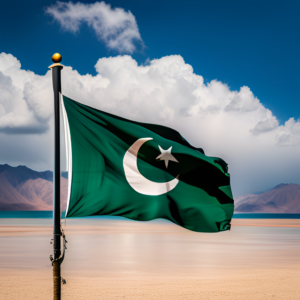
The Constitution of the Islamic Republic of Pakistan came into existence when it was passed by the National Assembly on April 10, 1973. Since then, it has undergone several amendments. Its introduction emphasizes that Almighty Allah holds sovereignty over everything in the Universe, and the people of Pakistan are entrusted with the authority to govern the country within the limits set by Him. In this constitution, Pakistan is officially declared an Islamic Republic with Islam as the state religion. The Constitution is designed to protect fundamental rights such as equality, justice, freedom of thought, expression, religion, and association, all subject to the rule of law and public morality. It also ensures the independence of the judiciary and safeguards the rights of minorities, granting them the freedom to practice their religions and preserve their cultural heritage.
Table of Contents
TogglePurpose of the Constitution:

The primary purpose of Pakistan’s Constitution is to establish a democratic state founded on the principles of Islamic social justice. It aims to uphold democracy, safeguard national and political unity, and foster a fair society. The Constitution seeks to eradicate all forms of exploitation and ensure that every individual is treated fairly based on their abilities and efforts. It also ensures that people are protected under the law and endeavors to enhance the social and economic well-being of the citizens. Furthermore, the Constitution seeks to strengthen Pakistan’s ties with the Muslim world, and promote international peace.
Fundamental Rights and Principles of Policy:
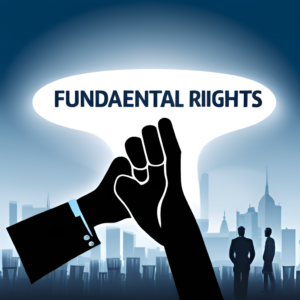
The Constitution guarantees fundamental rights to the citizens, including the freedom to move, speak, practice their religion, and own property. It also promotes equal educational opportunities and protection against discrimination. Additionally, the Constitution outlines guiding principles to be followed by the State, which include promoting an Islamic way of life, encouraging local governance, women’s participation, protection of minority rights, social justice, and international peace. All these provisions together aim to ensure that every citizen enjoys individual liberties, equality, justice, and that Pakistan becomes an inclusive and harmonious society.
Parliament of Pakistan:
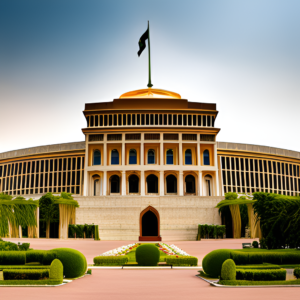
The Parliament of Pakistan which is known as Majlis-e-Shoora, is composed of three main entities: the President, the National Assembly, and the Senate. Parliament plays a vital role in lawmaking, policy formulation, and the oversight of various institutions. It possesses the authority to levy taxes, borrow funds, and guarantee loans. Parliament’s role is crucial in maintaining a balance of power and upholding democratic governance in Pakistan. Decisions made in parliament are final and cannot be challenged in any court unless they are in violation of the Constitution.
Role of the President, Prime Minister and Cabinet:
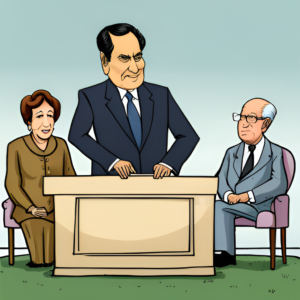
The President of Pakistan is the head of state and holds executive powers. The President has the authority to grant pardons and remains informed about national matters. However, the President must act on the advice of the Prime Minister and can be removed under specific circumstances. On the other hand, the Prime Minister is the head of government, elected by the National Assembly. The Prime Minister appoints Federal Ministers and Ministers of State and can hold office for multiple terms. The Cabinet, appointed by the President on the advice of the Prime Minister, assists and advises the Prime Minister in carrying out his duties.
Provinces and Governor:
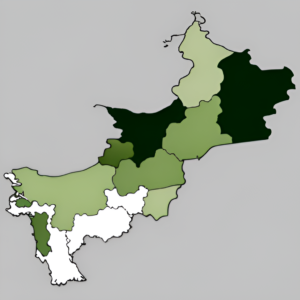
Provinces in Pakistan have their own governments headed by Chief Ministers, who are elected by the Provincial Assembly. The Provincial Government has executive authority and is accountable to the Provincial Assembly. The Governor, representing the President, possesses certain powers, including the right to address the Provincial Assembly and dissolve it under certain circumstances. The Provincial Government’s consent is required for financial measures and other significant decisions.
Judicature:
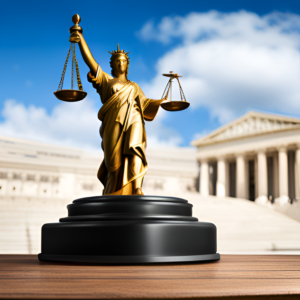
The Supreme Court is the highest court in Pakistan and holds original, appellate, and advisory jurisdiction. Each province has its own High Court, which exercises original and appellate jurisdiction within its territorial limits. Additionally, there is a specialized court called the Federal Shariat Court, which deals with Islamic law matters and certain constitutional issues. Judges are appointed based on specific qualifications, and each court has its own set of rules and functions.
Armed Forces:

The Federal Government has control and command over the Armed Forces, with the President serving as the Supreme Commander. The President has the authority to raise and maintain the Military, Naval, and Air Forces of Pakistan and appoint key military positions such as Chief of the Army Staff, the Chief of the Naval Staff, and the Chief of the Air Staff. Every member of the Armed Forces is required to take an oath as prescribed in the Constitution.
Islamic Provisions:
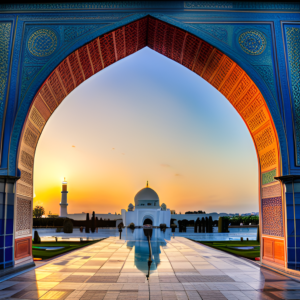
The Constitution incorporates several Islamic provisions, including the establishment of the Federal Shariat Court, which examines and determines whether any law or provision is inconsistent with the injunctions of Islam. The Constitution also requires that all laws be made in accordance with the teachings of the Quran and Sunnah and prohibits the enactment of any law that is against the Islamic principles. Additionally, the Constitution outlines qualifications and disqualifications for members of Parliament based on their adherence to Islamic principles. Moreover, the Constitution protects the rights of religious minorities and guarantees their freedom to practice their religion.
Amendments:
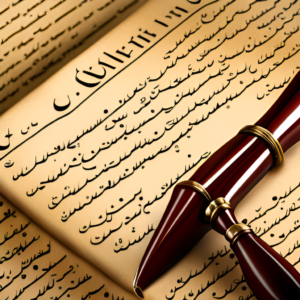
Since its adoption in 1973, the Constitution of Pakistan has undergone various amendments, amounting to a total of 26 changes. Some of the most significant amendments include the Eighteenth Amendment in 2010, which restored power to the Prime Minister and Parliament, and the Seventeenth Amendment in 2003, which increased the President’s authority. These amendments have played a crucial role in shaping Pakistan’s governance and legal framework over the years.
